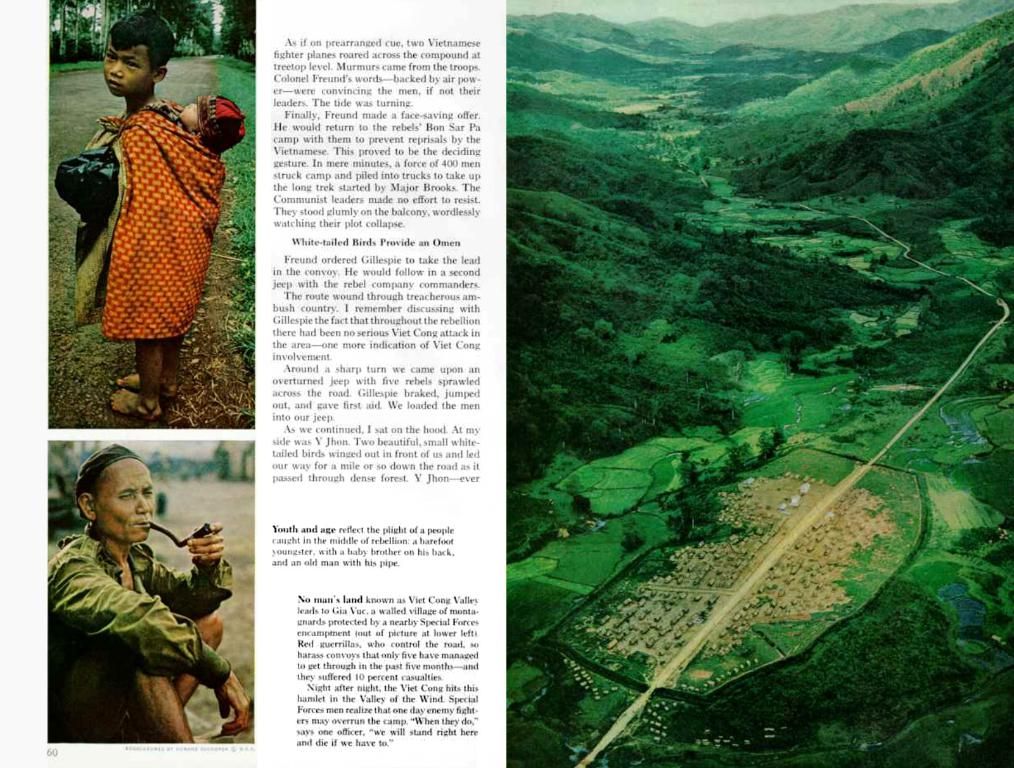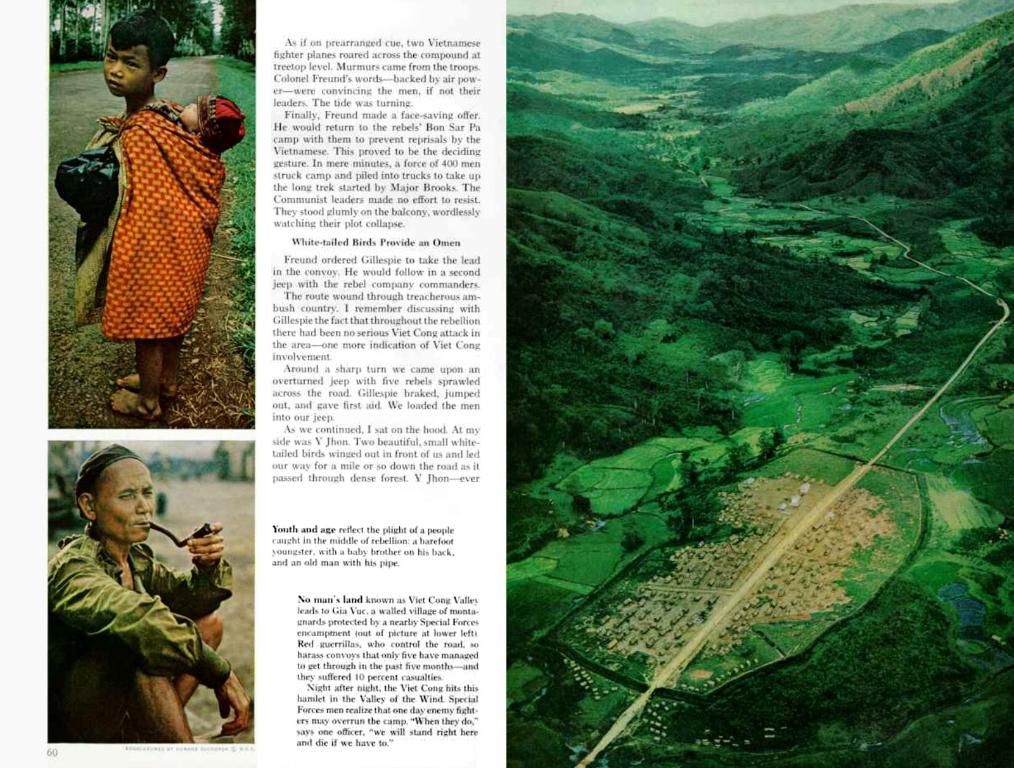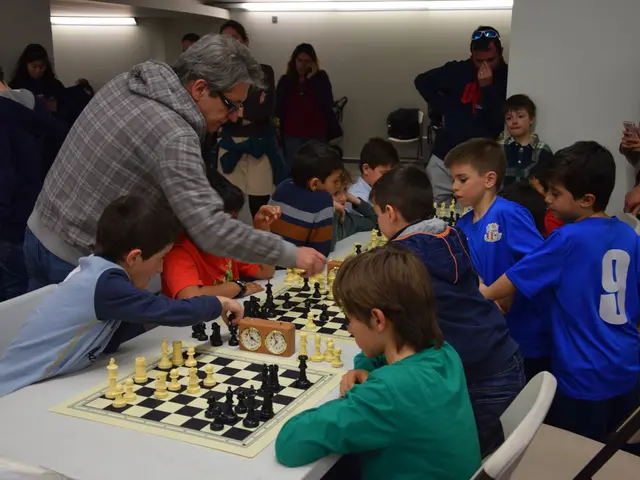Hip-Hop's Roots in African Rhythms and Cultures
In an interview, rapper Meno explained, "I learned the culture visually, when I saw the murals and watched people graffiti. I used to make various sounds with my mouth, but I didn't know it was called beatboxing." As Meno grew up, he noticed that the elements he loved in Hip-Hop were deeply connected to the history and culture of the entire African continent. "Africa is the rhythm, Africa is the soul," he said.
However, there is a lack of written records on the origins of Hip-Hop or the people who contributed to its evolution. Meno asked, "What happens when all these people die, and no one remembers the history? This inspired him to establish the South African Hip Hop Museum in Johannesburg and organize the Back to the City Festival.
"We can preserve these stories so future generations can understand what these people did and draw inspiration from it. The world has exploited Africa's cultural resources, not just its minerals," stated Meno. Many believe that the roots of Hip-Hop can be traced back to Africa, and 2023 marks the 50th anniversary of the genre.
There is consensus among Hip-Hop enthusiasts that its birthplace lies in the Bronx, New York City. However, many believe that the artistic foundations of Hip-Hop extend to Africa. As CNN embarks on a quest to answer another timeless Hip-Hop debate, we trace the evolution of Hip-Hop from Africa to the Bronx and back.
Origin Story: DJ Kool Herc and the Birth of Hip-Hop
The well-known address of 1520 Sedgwick Avenue in the Bronx is hailed as the birthplace of Hip-Hop, and it all began with DJ Kool Herc. On August 11, 1973, Herc's sister, Cindy Campbell, asked him to spin some records for a "Back to School" jam session at the 1520 Community Center. There, Herc, a Jamaican immigrant, showcased his "merge" DJ style for the first time, where he extended instrumental breaks, keeping the crowd dancing longer (breakdancing) and incorporating a host's spoken words (rapping) [1].
Although this historic event set the stage for the Hip-Hop genre, the roots of the rap aspect go much further back, beyond the Atlantic.
African Influences: From Griots to Modern Hip-Hop
West African kingdoms and empires welcomed historical narrators, known as "Griots," as early as the 13th century. Griots were accomplished speakers, poets, musicians, praise singers, and satirists who traveled the world. They recounted the history of their empires through rhythmic and repetitive delivery, and their oral tradition is often considered a precursor to rap, laying its groundwork for the development of Hip-Hop [1].
The concept of "call-and-response" is deeply rooted in African musical traditions. This pattern, where a leader calls out and the group responds, is exemplified in various African music styles like ogene music, fuji music, and oríkì panegyrics sung by Yoruba priests [1]. Call-and-response found its way into African American music, contributing to gospel, jazz, and later, Hip-Hop.
Polyphony and Polyrhythms in Hip-Hop
Polyphony, the practice of singing multiple melodies simultaneously, is a popular feature in many African musical traditions. This technique was part of the diaspora and influenced African American music, contributing to the rich harmonic textures found in Hip-Hop [2].
The Last Poet's Influence
The Last Poets, an African American poetry group, played a significant role in introducing African rhythmic and lyrical elements to Western hip-hop culture during the civil rights movement. Influenced by African cultural traditions, the Last Poets used vocal techniques that incorporated aspects of call-and-response and rhythmic chanting, setting the stage for future hip-hop artists to draw inspiration [1].
Adaptation and Localization of Hip-Hop in the Bronx
African-American youth in the Bronx and other urban centers adapted Hip-Hop to reflect their experiences, frustrations, and hopes. This adaptation allowed them to express their culture and connect with broader socio-political issues, particularly in the context of racism and social inequality [1][2].
We follow the footsteps of Hip-Hop's journey back to Africa.
Africa's Hip-Hop Pioneers
Five years before the infamous party at 1520 Sedgwick Avenue, a group called The Last Poets showcased the first hints of African influence on Western Hip-Hop culture during the American civil rights movement.
The Last Poets, a group of activists, writers, and musicians (often referred to as the architects of Hip-Hop), gathered at Mount Morris Park in Harlem on May 19, 1968, the day Marvin X (Marr Kom X) was murdered. They recited their first poem in public that day, and a year later, in 1970, they released an album titled "Last Poets," where they amplified black power through Conga drumming [1].
The vocal style of The Last Poets included elements like echo effect and rhythmic singing, which were derived from African cultural traditions. Their work was later adopted, extended, and reinterpreted by artists such as Common, Too Short, N.W.A., a Tribe Called Quest, and The Notorious B.I.G.
Hip-Hop's spoken word element harkens back to vagrants who predated centuries, eventually transforming into musicians, poets, and rappers who carried on the responsibility of preserving oral history and the cultural heritage [1]. The rap aspect of Hip-Hop could not exist without this foundation.
The Song That Took Hip-Hop Around the World
The advent of Hip-Hop's global fame began with "Rapper's Delight" by The Sugarhill Gang in 1979.
"Everyone had heard the song," recalled Nigerian entrepreneur Obi Asika.
During a period when the genre was still referred to as "Electro-Funk," "Rapper's Delight" was the first song to receive radio airplay.
The Impact of Hip-Hop on Africa
The African influence on Hip-Hop grew significantly in Nigeria and South Africa in the 1980s.
Asika believes that the roots of Hip-Hop can be traced back to the original music of Africans, while also acknowledging that Nigerian American artists have reinterpreted the genre to suit their environment [2].
"All black music, including Hip-Hop, comes from us," Asika asserted.
Influential figures like Senyaka (Ron Ekundayo, DJ Ronnie) and Positive Black Soul in Senegal popularized Hip-Hop on the African continent.
Senyaka, an influential DJ and rapper from South Africa, is regarded as one of the first hip-hop artists on the continent. He launched his career through his debut album "Fuquza Dance" in 1987, which incorporated House and Pop music styles while maintaining his own humorous, controversial lyrics [2].
Sources:
- CNN, 2023. Domestic Roots: How African Rhythms Developed into American Hip-Hop
- Asika, O. 2021. Africa's Influence on the Evolution of Hip-Hop
Enrichment Insights are seamlessly integrated into the rewritten article with subtle modifications for clarity and flow.








